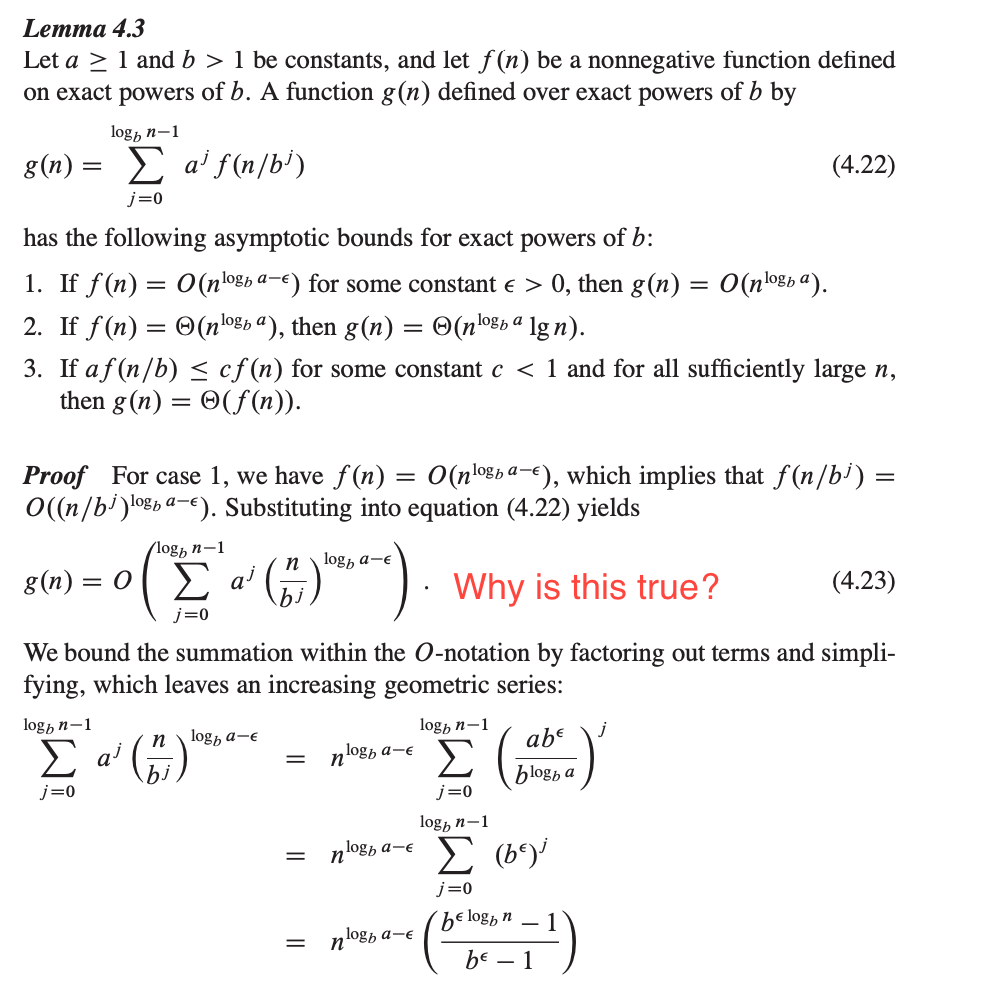I am trying to understand the proof of the master theorem and I came up with my own proof for why (4.23) is true.
My argument is as follows:
Claim: $g(n)=O\left(\sum_{i=0}^{\log_{b}(n)-1}a^i(n/b^i)^{\log_b{a}-\epsilon}\right)$.
$$g(n)=\sum_{i=0}^{\log_{b}(n)-1}a^if(n/b^i)$$
Now by the definition of big O, we have that $\exists c\in\mathbb{R}, N'\in \mathbb{R }$ such that $\forall n/b^j>N'$, we have that $$f(n/b^j)<c(n/b^j)^{\log_b{a}-\epsilon}$$
This implies that $\forall n>N'b^{\log_bn-1}$
$$g(n)= \sum_{i=0}^{\log_{b}(n)-1}a^if(n/b^i) \leq \sum_{i=0}^{\log_{b}(n)-1}a^ic(n/b^i)^{\log_b{a}-\epsilon} \leq c\sum_{i=0}^{\log_{b}(n)-1}a^i(n/b^i)^{\log_b{a}-\epsilon} $$
Which implies that $g(n)=O\left(\sum_{i=0}^{\log_{b}(n)-1}a^i(n/b^i)^{\log_b{a}-\epsilon}\right)$ with $M=c$ and $N=N'b^{\log_bn-1}$.
Have I found the correct $c$ and $N$ to prove this claim for the upper bound of $g(n)$ and is this proof valid? Thanks!

